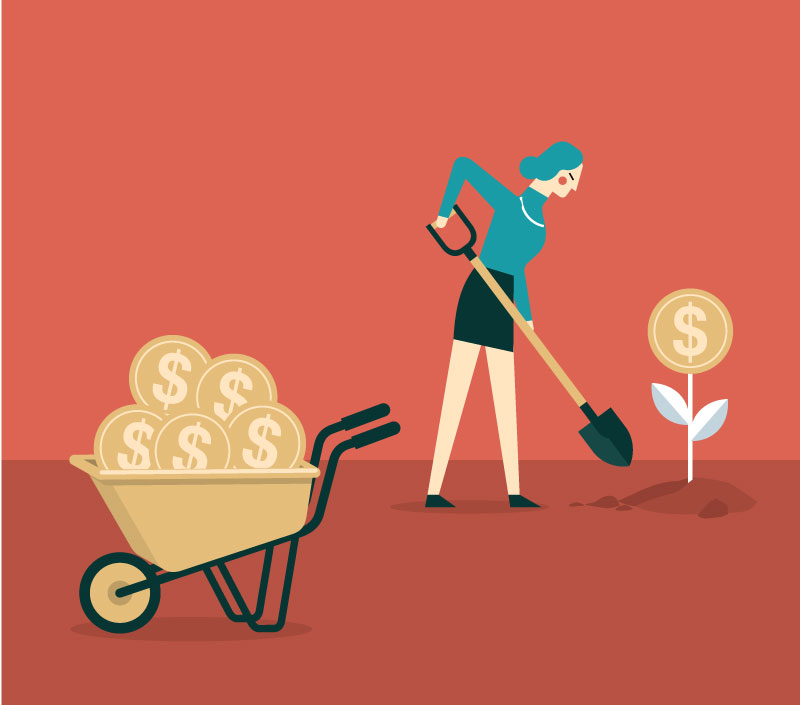5 Grant Writing Tips
Be passionate and specific—and follow the rules, say these experts.
 |
Getty Images/Runeer |
Intentionality is key to a successful grant application. “Working to identify the need is the very first step,” says Knop. “If you design a service or program that doesn’t align with your identified need, you will have difficulty writing a clear, competitive, and compelling proposal.” Here are more key strategies.
 Don’t just ask for money, advises Lisa Mulvenna, head of children’s and YA services at the Clinton-Macomb Public Library (CMPL) in Michigan. “You will have better success if you ask for ‘X’ dollars to fund ‘X’ projects” to meet a specific need or challenge.
Don’t just ask for money, advises Lisa Mulvenna, head of children’s and YA services at the Clinton-Macomb Public Library (CMPL) in Michigan. “You will have better success if you ask for ‘X’ dollars to fund ‘X’ projects” to meet a specific need or challenge.
Mulvenna, a five-time grant winner, stresses the importance of considering exactly “what and who the [funding] organization wants to fund.” She identified the Lego Children’s Fund as a good match for a $2,000 grant in 2014–15. The award went toward developing Little Scientist and Mad Scientist kits for STEM programming across the library system’s locations.
 Consider non-library funding sources, says Beth Yoke, chief strategy officer for the Public Library of Cincinnati and former executive director of the Young Adult Library Services Association (YALSA): “Look broadly at after-school, youth development, social-emotional learning, and other youth-related organizations.” Yoke contributed her expertise to the “Partnering To Increase Your Impact Toolkit,” released by YALSA in 2017.
Consider non-library funding sources, says Beth Yoke, chief strategy officer for the Public Library of Cincinnati and former executive director of the Young Adult Library Services Association (YALSA): “Look broadly at after-school, youth development, social-emotional learning, and other youth-related organizations.” Yoke contributed her expertise to the “Partnering To Increase Your Impact Toolkit,” released by YALSA in 2017.
Toolkit tips include “Compile and maintain a list of relevant funding opportunities, perhaps on a calendar, so you will know when the deadlines for applying are,” and “Cultivate potential funders,” a critical aspect of fundraising. “Only by talking to a funder, asking them questions and learning what excites them are we able to connect that funder’s interests to the needs of the library.”
 |
Getty Images/Sorbetto |
 Follow the rules, Mulvenna says. Identifying and including community partners can strengthen a proposal, and paying attention to the nuts and bolts of a particular application will ensure that it’s focused and relevant. “If the grant asks for a final report or for you to document every amount spent with receipts, do it,” she says. “[CMPL] has gained a reputation for doing this well, from one repeated funding source, and has been asked to apply again for additional funds.”
Follow the rules, Mulvenna says. Identifying and including community partners can strengthen a proposal, and paying attention to the nuts and bolts of a particular application will ensure that it’s focused and relevant. “If the grant asks for a final report or for you to document every amount spent with receipts, do it,” she says. “[CMPL] has gained a reputation for doing this well, from one repeated funding source, and has been asked to apply again for additional funds.”
 Be prepared for follow-up paperwork after the check comes through. “Once you win a grant, take a look at what is required for the final report,” says Mulvenna. “This way, you won’t be surprised and can work to get the required information as you go along.” Program participant survey data, qualitative feedback, attendance and circulation statistics, and budget information are key aspects of final reports. Caram’s MassCue grant requires a presentation at a conference.
Be prepared for follow-up paperwork after the check comes through. “Once you win a grant, take a look at what is required for the final report,” says Mulvenna. “This way, you won’t be surprised and can work to get the required information as you go along.” Program participant survey data, qualitative feedback, attendance and circulation statistics, and budget information are key aspects of final reports. Caram’s MassCue grant requires a presentation at a conference.
 Be gracious: Always send a thank-you letter, Rein says. “Be open to opportunities, and don’t be afraid to ask,” she adds. “Be passionate about what the grant is changing or enhancing; your vision will sell it.”
Be gracious: Always send a thank-you letter, Rein says. “Be open to opportunities, and don’t be afraid to ask,” she adds. “Be passionate about what the grant is changing or enhancing; your vision will sell it.”
April Witteveen is a community librarian at Deschutes Public Library in Bend, OR.
RELATED
The job outlook in 2030: Librarians will be in demand
The job outlook in 2030: Librarians will be in demand
ALREADY A SUBSCRIBER? LOG IN
We are currently offering this content for free. Sign up now to activate your personal profile, where you can save articles for future viewing





Add Comment :-
Comment Policy:
Comment should not be empty !!!